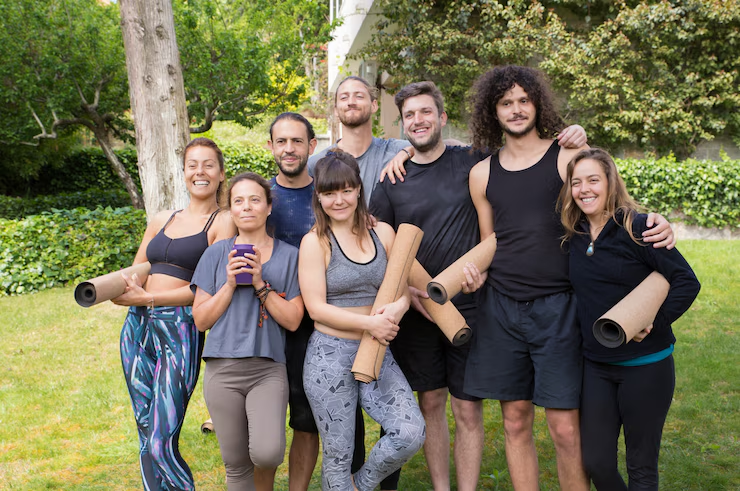Starting your day with intention can shape how the rest of it unfolds. Instead of waking up tired and reaching for your phone, imagine beginning each morning with energy, focus, and motivation. A powerful morning routine helps you feel more in control and less rushed as the day begins.
A good morning routine doesn’t have to be complicated. Simple habits like stretching, drinking water, planning your day, or meditating can improve your mood and boost productivity. Science shows that consistent morning habits can lead to better mental health, stronger focus, and a greater sense of accomplishment.
In this guide, we’ll share the top 10 most effective morning routines used by highly successful people. These routines are backed by research and proven to help you feel more alert and ready to take on the day. Whether you’re a student, a professional, or anyone wanting a better start, a smart morning routine can make a big difference.
Wake Up Early and Consistently

Waking up early is one of the most effective ways to improve your morning routine. It gives you extra time before the world gets busy, allowing you to enjoy peace and quiet. This quiet time can be used to focus on important tasks, plan your day, or simply enjoy a calm start.
Having a consistent wake-up time is key to building a strong morning routine. It helps set your body’s internal clock, making it easier to wake up feeling refreshed. When you wake up at the same time every day, your body adapts, and your sleep quality often improves.
Early mornings also give you the space for self-care, whether it’s light exercise, journaling, or meditation. These small actions help you feel more grounded and prepared for the day ahead. By waking up early and building a solid morning routine, you set a positive tone that can last all day long.
How to Do It
Aim to wake up at the same time every day, even on weekends.
Gradually adjust your wake-up time by 15-minute increments if needed.
Use a gentle alarm or natural sunlight to wake up peacefully.
Pro Tip: Try the “5 AM Club” method popularized by Robin Sharma. Waking up at 5 AM gives you a solid hour of uninterrupted time before the world gets busy.
Hydrate First Thing
After 6 to 8 hours of sleep, your body naturally becomes dehydrated. One of the simplest and most powerful steps in a morning routine is drinking water right after waking up. This small habit can make a big difference in how you feel and function during the day.
Drinking water first thing in the morning helps rehydrate your body quickly. It also supports better digestion, increases energy levels, and helps wake up your brain. Since your body hasn’t had any fluids overnight, this step is essential to kick-start your internal systems.
Adding water to your morning routine also helps flush out toxins that may have built up during the night. It’s a natural and easy way to refresh your body from the inside out. Making this a daily habit supports a healthier lifestyle and gives you a cleaner, more energized start to your day.
How to Do It
Keep a glass or bottle of water next to your bed.
Drink at least 16–20 oz (500–600 ml) of water within 10 minutes of waking.
Add lemon for an added boost of vitamin C and detox benefits.
Bonus Tip: Avoid coffee first thing. Drink water first, then wait 30–60 minutes for caffeine.
Practice Mindfulness or Meditation

Morning meditation is a powerful habit to include in your morning routine. It helps you start the day with a calm and clear mind, rather than stress or distraction. Even just a few minutes of quiet breathing or mindfulness can make a big impact on your mood and focus.
Meditation in the morning reduces stress by calming your nervous system. It also improves mental clarity, helping you think more clearly and stay focused on your goals. Many people find that starting the day with meditation helps them feel more in control and less overwhelmed.
By making meditation part of your morning routine, you also build emotional resilience. This means you’re better able to handle challenges, stay calm in stressful moments, and respond thoughtfully instead of reacting quickly. Meditation sets a positive tone for the day and supports both mental and emotional well-being.
How to Do It:
Sit quietly for 5–10 minutes, focusing on your breath.
Use a meditation app like Headspace, Calm, or Insight Timer if you’re a beginner.
Try guided affirmations or gratitude meditation for a positive mindset.
Alternatives: If meditation feels difficult, try journaling or deep breathing exercises instead.
Get Moving: Exercise or Stretch
Exercise is a great way to start your morning routine. Moving your body early in the day helps wake you up, gets your blood flowing, and prepares you for the tasks ahead. It doesn’t have to be intense—even light stretching or a short walk can make a big difference.
When you exercise in the morning, your body releases endorphins, which are natural feel-good chemicals. These endorphins help improve your mood, reduce stress, and make you feel more positive. Exercise also boosts brain function, helping you stay focused and alert during the day.
Adding exercise to your morning routine also increases your overall energy levels. Instead of feeling sluggish, you’ll feel more active and ready to tackle the day’s challenges. It improves both your physical and mental health and sets a strong, motivated tone for the rest of the day.
How to Do It
Go for a 20–30 minute jog, walk, or cycle.
Do a short bodyweight workout: pushups, squats, planks.
Try yoga or stretching for mobility and calmness.
Bonus: Morning sunlight exposure during your walk helps regulate circadian rhythm and improves sleep at night.
Take a Cold Shower (or Contrast Shower)

Cold showers may seem intense, but they can be a powerful part of a healthy morning routine. Taking a cold shower in the morning helps wake up your body and mind quickly. The sudden cold triggers deep breathing, which increases oxygen intake and alertness.
Cold showers also boost blood circulation and help reduce inflammation in the body. These benefits support better overall health and recovery, especially if you’re physically active. Many people find that cold showers improve their mood and help them feel refreshed and ready for the day.
Adding cold showers to your morning routine can also strengthen your mental toughness. Stepping into cold water requires willpower and builds discipline over time. It’s a small challenge that trains your mind to stay calm and focused even in discomfort. Over time, this practice can increase confidence and help you handle daily stress more easily.
How to Do It
Start with a warm shower, then switch to cold water for the last 30–60 seconds.
Gradually increase the cold exposure over time.
Focus on deep breathing while under cold water to control shock.
Bonus Tip: Cold showers are a favorite among high achievers like Tony Robbins and Wim Hof.
Eat a Nutritious Breakfast

Breakfast is a key part of any effective morning routine. After hours of sleep, your body needs fuel to start the day right. Eating a healthy breakfast gives your brain and body the energy they need to function well throughout the morning.
A balanced breakfast that includes protein, fiber, and healthy fats helps keep your blood sugar steady. This means fewer energy crashes and better focus. Starting your day with the right foods also improves memory, concentration, and your ability to stay alert during tasks.
Including breakfast in your morning routine also helps prevent overeating later in the day. When you skip breakfast, you’re more likely to feel extra hungry and snack on unhealthy foods. A strong start in the morning sets the tone for better choices and higher energy levels all day long. Making breakfast a regular habit supports both mental and physical well-being.
How to Do It
Include whole foods: eggs, oats, fruits, nuts, seeds, and leafy greens.
Avoid sugar-laden cereals and refined carbs that cause crashes.
Try smoothies or overnight oats for a quick and portable option.
Sample Power Breakfast: Oatmeal with almond butter, banana, chia seeds, and a boiled egg on the side.
Set Goals and Plan Your Day
Clarity is a powerful tool, and your morning routine is the best time to create it. Taking a few quiet minutes to plan your day can make a big difference. When you start your morning by setting priorities, you give yourself a clear path to follow instead of reacting to everything that comes your way.
This habit helps reduce stress and confusion. With your top tasks in mind, you’re less likely to feel overwhelmed or distracted. You can focus on what truly matters, which boosts your productivity and helps you stay on track.
Including planning in your morning routine also helps you align your actions with your goals. Whether it’s writing a to-do list or reviewing your long-term plans, this moment of reflection connects your daily choices with your bigger dreams. It brings purpose to your day and sets a calm, confident tone for everything that follows.
How to Do It
Use the “Top 3 Priorities” method: list the 3 most important tasks for the day.
Block your calendar into focus and break periods.
Visualize your ideal day and what success looks like.
Bonus Tip: Journaling 5–10 minutes in the morning can clear mental clutter and boost motivation.

Read or Listen to Something Inspirational
Starting your day by feeding your mind is a powerful part of any morning routine. Whether it’s reading a book, listening to a podcast, or playing an audiobook, this habit can spark new ideas and keep you inspired. It sets a positive tone and helps you feel mentally prepared for the day ahead.
Reading or listening to something educational in the morning improves focus and supports learning. It trains your brain to pay attention and think deeply. Even just 10 to 15 minutes can boost your mindset and help you grow over time.
If you have a busy schedule, audiobooks and podcasts are great options for a flexible morning routine. You can listen while getting ready, commuting, or exercising. No matter how you choose to do it, making space for personal growth in the morning keeps your mind sharp and your motivation strong throughout the day.
How to Do It
Read 10–20 pages of a self-help, business, or spiritual book.
Listen to a 10–15 minute podcast while getting ready or commuting.
Avoid negative news or social media first thing in the morning.
Recommendations
Books: Atomic Habits by James Clear, The Miracle Morning by Hal Elrod
Podcasts: The Daily Stoic, The Tim Ferriss Show
Practice Gratitude

Starting your day with gratitude is a simple but powerful step in any morning routine. Taking a moment to reflect on what you’re thankful for helps you begin the day with a positive mindset. This small habit can make a big difference in how you feel and how you handle challenges.
Practicing gratitude in the morning can reduce stress and anxiety. When you focus on the good things in your life, it becomes easier to stay calm and hopeful. It also improves your mood and encourages a more peaceful and joyful start to the day.
Adding gratitude to your morning routine shifts your focus from what’s missing to what you already have. This change in mindset creates a sense of abundance and contentment. Whether you write in a journal or just think about a few things you’re grateful for, this habit helps set a happier, healthier tone for the rest of your day.
How to Do It
Write down 3 things you’re grateful for each morning.
Reflect on why these things matter and how they make you feel.
Speak your gratitude out loud or silently during meditation.
Bonus: Gratitude journaling improves long-term mental health and builds emotional resilience.
Dress with Purpose and Prepare for the Day
How you dress in the morning plays a bigger role than you might think. Including this step in your morning routine helps you feel more prepared and focused. Even if you’re staying at home, changing out of sleepwear and getting ready with care sets a clear mental shift from rest to action.
When you dress with intention, it boosts your confidence. You’re more likely to take yourself and your tasks seriously. Wearing clothes that make you feel good can lift your mood and help you feel more capable throughout the day, no matter where you are.
Adding thoughtful dressing to your morning routine also improves productivity. It tells your brain that it’s time to work and be present. This simple habit helps create structure and signals the start of a productive day. How you look can influence how you think and act—starting with your clothes can lead to a better mindset.
How to Do It
Choose clothes that make you feel sharp, clean, and motivated.
Groom yourself well—shower, comb your hair, and dress like you mean business.
Pack your bag, prep lunch, or double-check your schedule.
Bonus Tip: Lay out your clothes the night before to reduce morning decision fatigue.
Sample Morning Routine Timeline (For a 6:00 AM Wake-Up)
| Time | Activity |
|---|---|
| 6:00 AM | Wake up & hydrate |
| 6:10 AM | 10-min meditation |
| 6:20 AM | Light workout or walk |
| 6:50 AM | Cold shower |
| 7:00 AM | Healthy breakfast |
| 7:20 AM | Journal & set goals |
| 7:40 AM | Read or listen to podcast |
| 8:00 AM | Get dressed & review your day plan |
Benefits of a Consistent Morning Routine
Increased productivity – You start with focus and intention.
Better mental health – Mindfulness and gratitude reduce stress.
Improved discipline – Daily habits build consistency and willpower.
Boosted confidence – A strong start builds daily wins.
Stronger health – Hydration, movement, and nutrition build a resilient body.
Conclusion

A well-planned morning routine can transform your day and your mindset. It helps you take control of your time, stay focused, and feel more positive and energized. Whether it’s waking up early, drinking water, meditating, exercising, or setting daily goals, each step adds structure and purpose to your morning. These small habits, done consistently, create a ripple effect that can improve your mood, health, and productivity throughout the day.
Including activities like reading, practicing gratitude, and dressing with intention can further strengthen your morning routine. You don’t need to follow a strict plan—what matters is finding what works best for you and sticking with it.
By starting each day with clarity and calm, you build a strong foundation for success. A good morning routine isn’t just about what you do—it’s about how you feel while doing it and the results it brings over time.
FAQs
- Why is a morning routine important ?
A morning routine helps you start the day with focus, energy, and a clear mind. It sets the tone for a more productive and balanced day. - How long should a morning routine be ?
A morning routine can be as short as 15 minutes or as long as an hour. The key is consistency and choosing habits that support your goals and lifestyle. - What are some quick activities to include in a morning routine ?
You can drink water, stretch, write in a journal, review your goals, or listen to a motivational podcast—all within a short time frame. - Can a morning routine improve mental health ?
Yes, a good morning routine can reduce stress, improve mood, and create a sense of control, which supports overall mental well-being. - How do I stick to a morning routine ?
Start small, stay consistent, and build habits that feel enjoyable and meaningful. Prepare the night before to make mornings smoother.
